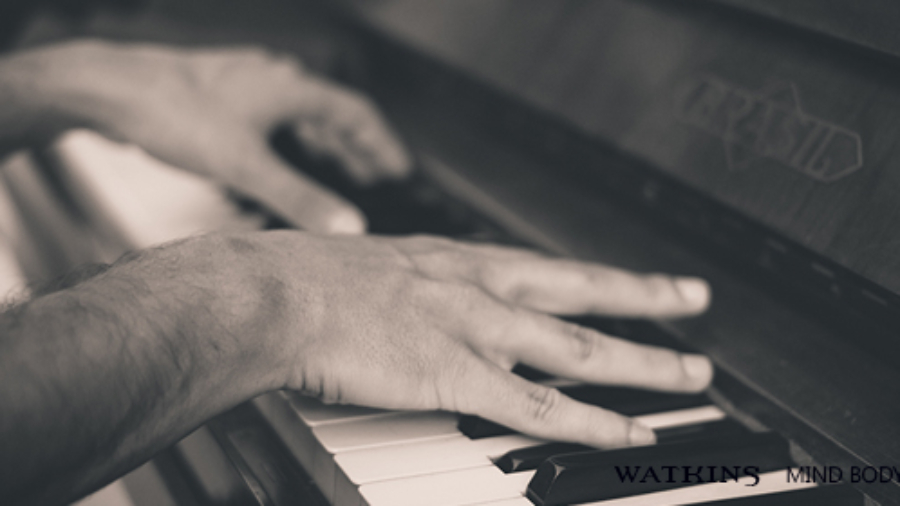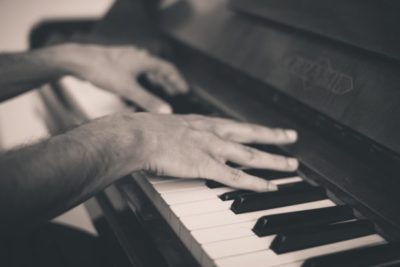Dr John Powell explains how listening to music can reduce stress and help us to relax.
This article first appeared in Watkins Mind Body Spirit, issue 51.
Most of us suffer from stress at one time or another, and stress can cause us to sleep badly. This can lead to a vicious cycle of stress causing insomnia and insomnia causing even more stress. If this cycle continues you can become chronically depressed. The only remedy for the situation is to break the cycle, and both traditional and alternative medical systems usually do this by providing medicines which will help you sleep better. Once a regular, sufficient sleep pattern is established your stress levels will drop and the depression will abate. However, there are disadvantages to sleep promoting medicines, particularly if they become a habit. Happily a non-chemical solution is at hand – bedtime music. This might sound too good to be true, but rigorous testing has shown that relaxing music reduces the amount of the stress hormone noradrenaline (norepinephrine) in your system.
This chemical controls how vigilant and awake you are, so any method of reducing it will help you fall asleep. In 2008 Psychologist Lazlo Harmat and his colleagues tested music in this way by gathering together ninety four students with sleeping problems and dividing them into three groups. One group was given a recording of relaxing classical music to listen to at bedtime, a second group was supplied with an audio book and the third received nothing. Those with the music or audio books were asked to play them every night for forty-five minutes just before they went to bed. After only three weeks of bedtime listening, thirty of the thirty five students in the music listening group had become good sleepers (according to the Pittsburg Sleep Quality Index). Listening to audio books helped only nine out of thirty people – probably because audio books are too stimulating and thought-provoking. Music doesn’t only help young people with sleeping problems though. In 2003 Hui-Ling Lai and Marion Good had carried out a similar study on people with serious sleep problems aged between sixty and eighty three.
The participants were given music tapes which lasted about forty five minutes, and they were asked to listen to them after they had got into bed. (It takes most adults between thirteen and thirty-five minutes to fall asleep). Once again the music worked its magic, but on a smaller proportion of the group (probably because the sleeping problems of this older group were more deeply imbedded). In this case half the participants became good sleepers after three weeks of listening. There is good news for people with blood pressure and heart disease problems too. Coronary heart disease is the most common cause of death in a lot of countries, including the US and the UK. What generally happens is that prolonged stress causes a long-term increase in blood pressure called hypertension – which often results in heart disease, heart attacks and strokes. Experiments have shown that if music therapy (music with relaxation/imagery exercises) is combined with standard patient support, there is a noticeable improvement in blood pressure, anxiety levels and general well being. As Psychologist Susanne Hanser puts it: ‘Individuals with cardiac conditions were able to take charge over the stress in their lives when they learned to recognize how music changed their heart rate and blood pressure.’ Biofeedback devices, which monitor your blood pressure and pulse rate, can be very useful in this context – you can put some of your favourite relaxing music on the stereo and watch your pulse rate and blood pressure fall, and train yourself to relax. These notes are taken from the chapter ‘Music as medicine’ in my recent book Why We Love Music*. If you found them interesting you might enjoy the rest of the book, which covers a broad range of the psychological aspects of music, such as ‘Music and your emotions’, ‘Does music make you more intelligent? and ‘How musicians push our emotional buttons’.
Meet the author: Dr John Powell is a physicist and a classically trained musician, with naturally curly hair. He has given lectures at international laser conferences and played guitar in pubs in return for free beer. He prefers the latter activity. He holds a master’s degree in music composition and a PhD in physics, and has taught physics at the universities of Nottingham and Lulea (Sweden) and musical acoustics at the University of Sheffield. He lives in Nottingham.



